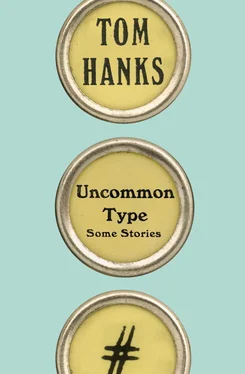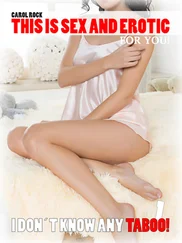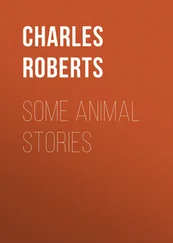What could Sue do? Where could Sue go? She was hunting for her own New York City apartment every single day, but the agencies named Apartment Finders and Westside Spaces had “listings” that were in dark, urine-stained tenements where no one answered the buzzer, or were no longer available, or never existed in the first place. Shelley told her to post a Need a Roommate notice on the board at Actors’ Equity, but Sue confessed that she had yet to join the union—she couldn’t until she had an acting job. Shelley gave her a half-lidded look of supreme disappointment and another “yeah, okay,” then added, “Next time you go to ShopRite, get a big can of Chock Full O’Nuts, please.” In this eighth week—the start of her third month on the isle of Manhattan—the bundle of Arizona talent who had played Maria in West Side Story (just last season at the ACLO) was prone to weeping at night, silently, in her bedroll on the couch, in the diamond-shaped silhouettes made by the window’s security gates (were such things actually burglarproof?). On the subway, which cost her fifty cents a ride, she often fought back tears, worried that someone would see a pretty young girl undone by her struggles and, well, rob her or worse. For Sue, moving to New York was an act of faith, faith in herself, in her talent, and in the promise of the city that never slept. It was supposed to be an adventure, like something out of the movies, where she would come out of a stage door after a performance and kiss a handsome sailor on shore leave, or a TV show like That Girl, where she’d have an apartment with a big kitchen and louvered shutters and a boyfriend who worked for Newsview magazine. But New York was not cooperating. How could things be going so sadly for Sue Gliebe, who was the very definition of a triple threat; she could sing, dance, and act! Her parents had recognized her raw talent when she was a little girl! She had starred in all the high school plays! She had been selected from the chorus at the Civic Light Opera to become their lead actress for three seasons running! She had done High Button Shoes with Monty Hall, the host of TV’s Let’s Make a Deal ! She had had a going away party with a big banner reading ON TO BROADWAY!
So why was New York, New York, making her cry? Her first night in the city, when Rebecca took her via the bus to see Lincoln Center, Sue had looked at all the locals along upper Broadway and actually asked, “Where is everyone going?” She now knew that everyone was going everywhere. This morning, she was going to the bank, the Manufacturers Hanover branch where she had opened an account five weeks before. From behind a Plexiglas (bulletproof) wall, a disinterested female teller slid a ten-dollar bill, a fiver, and five ones through a slot, leaving it to Sue to note that her savings were now down to exactly $564. She had spent more than $200 in New York City and had nothing to show for it but a five-buck umbrella, a blue one with a telescoping handle.
From the bank, Sue went to a donut shop for one plain cake—which was the least expensive—and a coffee with sugar and half-and-half. That was breakfast. She ate standing at a counter sticky from bits of sugar glaze and spilled java. Barely fortified, she walked to the office of Apartment Finders on Columbus Avenue, which was up a wide flight of stairs and above a Hunan Chinese restaurant. The posted listings on the wall had not changed since Saturday, but Sue searched the bulletin board anyway, for a diamond chipped off a ring, for an overlooked gem, for a place with her name on it. Apartment Finders had cost her fifty dollars a month, money she might as well have used to light candles. She would come back later in the day, when, supposedly, new listings were posted, but she already knew her hopes were sure to be dashed again.
Sue decided she was adapting to Gotham, because she turned on her heel and headed back over to Broadway with an agenda for the day. She would not blow time by idly walking in Central Park, with its weedy lawns and cracked benches, dirty sandlots and pathways littered with discarded coffee cups, spent condoms, and other trash. She would not filter through the record stores and bookstores without buying any of the titles. She would not spend money on the trade papers— Show Biz, Back Stage, or Daily Variety —looking for notices of Equity Principal Interviews or auditions for Non-Equity Showcases. Not today. Today, she was going to the Public Library, the famous building at Forty-Second and Fifth, the landmark building with the stone lions in front.
Two blocks from the Eighty-Sixth Street subway station, the rain started. Sue halted, reached for her umbrella, pushed the button on the telescoping handle, but the handle did not telescope. She pulled on the fabric of the thing, forcing it open, but in doing so bent some of the spokes. When she tried to slide the plastic knob up the shaft, the umbrella bent like the leg of a card table. She shook the umbrella and tried forcing the knob, but only half of the cover deployed. With the rain getting heavy, she recocked and again tried to get the umbrella open, but it inverted into a scoop and more of the spokes disconnected like severed ribs.
Giving up, she tried to jam the worthless skeleton into an overflowing trash bin at Broadway and Eighty-Eighth, but the umbrella seemed to fight back, refusing to go in with the other garbage. It took her four tries before it stayed put.
Sue hurried to the subway station. Her hair was dripping from the rain as she stood in line at the kiosk to purchase the two tokens she would need for the day’s travels.
The local trains were delayed. A flood on the uptown tracks. The crowd grew on the platform, large enough that Sue was edged ever closer to the yellow safety line. One bump and she could have fallen onto the tracks. Forty minutes later, she was standing in a subway car so crowded the riders were crammed against each other, their body heat making steam rise from their heavy, rain-soaked coats. The car was so stuffy and hot Sue began sweating. At Columbus Circle the car stopped and did not move for ten minutes, the doors jammed shut, preventing escape. Finally, at Times Square, Sue pushed herself out of the car and into the stream of people who had managed to find the stairs. She tramped up and up and through the turnstiles, then up more stairs and out into the chaos of the Crossroads of the World, where everybody was going everywhere.
Times Square was an exterior version of the station below—filthy, flooded, and overcharged with people. Sue had learned a primary lesson since her arrival in the city, to keep moving, to walk with purpose even when she had none, especially along Forty-Second Street, dodging the human debris that collected there for the drugs, the porn, and, in the rain, to peddle five-dollar umbrellas.
She’d navigated the area before, seeking appointments at the lesser talent agencies, those with offices close by the big X where Broadway crossed Seventh Avenue. She had been surprised to find normal people at normal desks doing normal business just floors above the hissing concrete of Times Square. She had no luck with any of the agents—she never made it past the outer offices—so was reduced to leaving her résumé with secretaries who would say, “Yeah, okay,” in a tone remarkably similar to her temporary cohost Shelley’s.
On this Monday, her agenda was her résumé.
During her last month in Scottsdale, Sue had done two TV commercials for Valley Home Furniture, sweeping her arms wide, exclaiming, “Every room, every style, every budget!” Then, for four weekends, she had acted at the Autumnal Renaissance Faire, quoting Shakespeare as a Lusty Wench for thirty dollars a day. She had added those credits to her résumé with a ballpoint pen, but she knew it looked, well, amateurish . So she was going to retype the whole thing, get an offset printer to make a hundred copies, then staple one each to the backs of her head shots, the photo that made her look like Cheryl Ladd from Charlie’s Angels but with real cleavage.
Читать дальше











